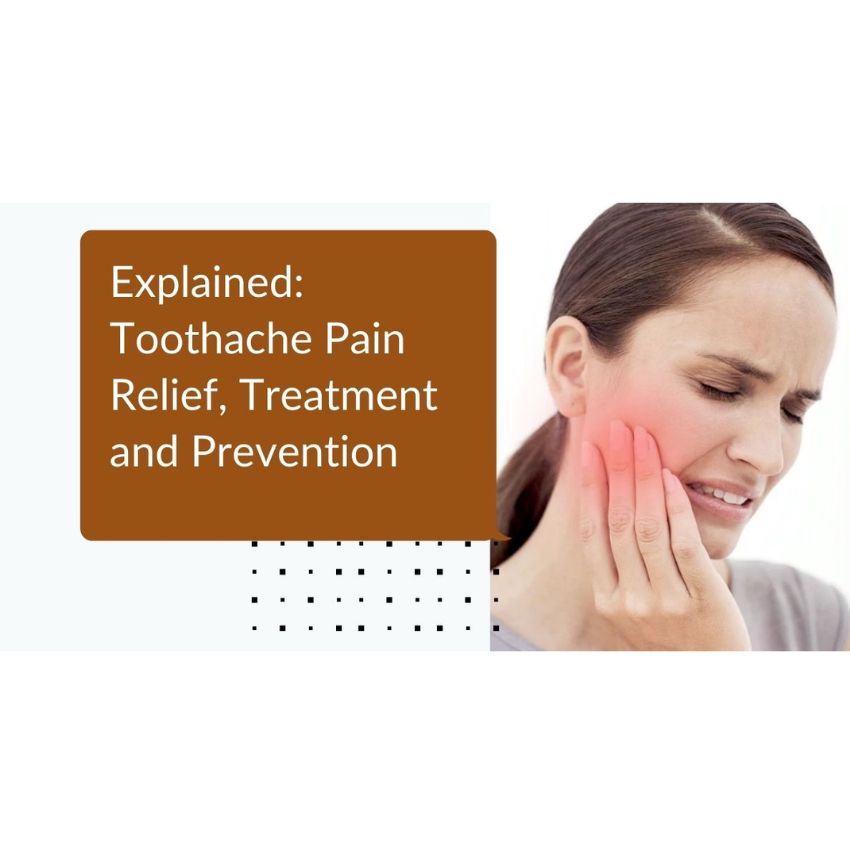Imagine you are going about your day, feeling on top of the world, when suddenly, a sharp, persistent toothache strikes. It is as if someone flipped a switch, turning your smile into a painful reminder of your oral woes. But fear not! Managing a toothache does not have to be an unbearable challenge.
With the right approach and dental know-how, you can regain control and bid farewell to that relentless pain. As we unfold the secrets of emergency toothache relief, you get ready to take charge and conquer that pesky toothache. Let’s dive in!
Why Should You See a Dentist?
Seeing your dentist for a toothache is crucial for several reasons. Here are some key reasons why seeking professional dental care is important when you have a toothache:
Accurate Diagnosis: A toothache can have various underlying causes, ranging from dental decay and infections to gum disease, tooth fractures, or even referred pain from other areas. A dentist has the expertise and tools to accurately diagnose the cause of your toothache. Your dentist will examine your condition. They need the reports of your X-ray to determine the root cause of your pain.
Proper Toothache Treatment: Once the dentist identifies the cause of your toothache, they can provide the appropriate treatment. This may include procedures like dental fillings, root canal therapy, tooth extraction, or other specialized treatments tailored to your specific situation. Prompt and appropriate treatment can help alleviate your pain and prevent further complications.
Toothache Pain Relief: Toothaches can be excruciatingly painful and can greatly impact your quality of life. Dentists can provide immediate relief by prescribing pain medications or performing procedures that alleviate the underlying cause of the pain. They can also offer guidance on home remedies or pain management techniques to provide temporary relief while awaiting treatment.
Should One Consider Losing a Dental Crown an Emergency?
Prevention and Oral Health Maintenance: Regular dental visits for toothaches help establish a preventive dental care routine. Your dentist is the one who can identify and address your toothache. By addressing these problems early on, further toothaches and oral health complications can be minimized or prevented altogether.
Professional Advice and Guidance: Dentists are oral health experts who can provide personalized advice and guidance on how to prevent future toothaches and maintain optimal oral health. They can educate you on proper oral hygiene techniques, recommend suitable dental products, and offer lifestyle suggestions to reduce the risk of future dental problems.
What Causes Toothache?
A toothache can have various causes, ranging from dental issues to underlying health conditions. Below we have provided you with some common causes of toothache:
Dental Decay: Tooth decay is the most common cause of toothaches. When bacteria produce acids that erode tooth enamel, it leads to cavities. When there is a cavity, it can cause pain.
Gum Disease: Periodontal disease, or gum disease, can cause toothaches. It occurs when the gums get the infection and it is inflamed due to plaque buildup. As gum disease progresses, it can lead to gum recession, tooth root exposure, and tooth sensitivity.
Tooth Sensitivity: Tooth sensitivity, characterized by sharp, temporary pain when exposed to hot, cold, sweet, or acidic foods and beverages, can also lead to toothaches. It often occurs due to enamel erosion, gum recession, or exposed tooth roots.
Impacted Wisdom Teeth: When wisdom teeth (third molars) do not have enough space to fully emerge or grow in the proper position, they can become impacted. Impacted wisdom teeth can cause pain, swelling, and infection in the surrounding gums and teeth.
Temporomandibular Joint (TMJ) Disorders: TMJ disorders, which affect the jaw joint and surrounding muscles, can cause toothaches. Dysfunction in the jaw joint can result in referred pain in the teeth and jaw area.
Treatment
When it comes to professional treatment for toothaches, seeking the expertise of a dentist is essential. Thousand Smiles Dentists have the knowledge and tools to diagnose and address the underlying causes of toothaches. If you are looking for the best pain relief for toothache, below are some common professional treatment plans that dentists can offer:
Dental Examination: The first step in professional treatment is a thorough dental examination. The dentist will visually assess the affected tooth and surrounding areas, looking for signs of decay, gum disease, abscesses, or other dental issues.
Dental X-Rays: X-rays may be taken to provide a more detailed view of the teeth and supporting structures. This helps the dentist identify any underlying problems that may not be visible to the naked eye, such as tooth fractures or impacted wisdom teeth.
Dental Fillings: If tooth decay is causing toothache, the dentist may recommend a dental filling. This involves removing the decayed portion of the tooth and filling the cavity with a suitable material (such as composite resin or amalgam) to restore the tooth’s structure and alleviate the pain.
Root Canal Therapy: In cases where the tooth’s pulp is infected or damaged, a root canal procedure may be necessary. This treatment involves removing the infected or damaged pulp, cleaning the root canals, and sealing them to prevent further infection. Root canal therapy can save the tooth from extraction and provide long-lasting pain relief.
Dental Extraction: If a tooth is severely damaged, infected, or impacted and cannot be saved, the dentist may recommend extraction. This process entails extracting the tooth from its socket within the jawbone. Tooth extraction is typically considered a last resort when other treatment options are not feasible.
Medications: Dentists may prescribe pain medications, antibiotics, or antimicrobial mouth rinses to manage the toothache and treat any underlying infections.
Prevention
Prevention is key when it comes to avoiding toothaches. Maintain good oral hygiene to prevent toothache. Brush your teeth twice a day and floss daily after brushing to remove dental plaque and bacteria that can lead to unwanted tooth decay and gum disease.
Schedule regular dental check-ups and cleanings to catch any potential dental issues early on and maintain optimal oral health.
Also, for preventing toothache from injuries, you may want to wear a mouthguard during sports or activities that pose a risk of dental injuries. Avoid tobacco and excessive alcohol consumption as much as possible. Taking Tobacco and alcohol can cause more negative effects on dental health.
At Thousand Smiles, we encourage you to take charge of your oral health and consult one of our reputed dentists to understand how we can help. Contact us today to book a consultation.



